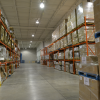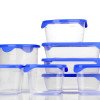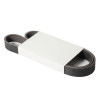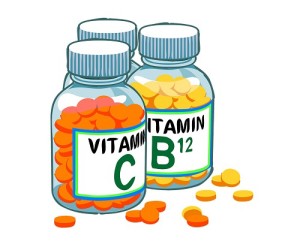What to Look for in a New Co-Packing Partner
Posted By: Karl Wirtz
Posted On: 27th October ‘ 16
When you’re on the hunt for a new co-packer, you need to be sure you’re making a strategic choice – working with a partner dedicated to helping you boost sales and grow your business.
But how do you know you’re making the best decision?
We’ve put together this guide to help you find the co-packing partner that will be right for you:
1. Look for a Co-Packer Offering Services That Meet Your Needs
Each co-packer is unique, offering different types of services tailored to particular industries. You need to find a co-packer who complements your in-house capabilities, whether that means you need a:
- Turnkey partner, ready to handle everything from sourcing packaging supplies to providing warehousing solutions. If your internal team’s strengths are sales and marketing, this type of solution might be suitable for you.
- Packaging provider, which is ideal if your team already has supply chain and logistics expertise.
2. Research a Co-Packer’s Reputation and History
Before choosing a co-packer, you need to know how long they’ve been in business and what areas of expertise they possess.
You can learn more by:
- Asking other business owners in your network to find out if they’ve heard about or had experience working with any co-packers in particular.
- Researching the co-packer’s leadership team. Are they a jack of all trades or do they offer specialized services for specific industries?
3. Choose a Co-Packer with a Prime Location
Your co-packer should be close enough to you that you can easily visit them when necessary. They should also be close to major transportation hubs – including airports and border crossings – to keep costs under control and give you easy access to both domestic and international markets.
4. Find a Co-Packer with the Right Certifications
Depending on the types of goods being packaged, having the right certifications really matters – especially when it comes to pharmaceuticals and foods.
Necessary certifications might include:
- Health Canada approval.
- DEL licensing.
- GFSI compliance.
- BRC, HACCP, and AIB certifications.
- Segregated nut and nut-free zones.
5. Work with a Co-Packer Committed to Safety and Quality
As you’re researching the co-packers in your area, make sure you ask questions like:
- Do they undertake quality inspections regularly?
- What employee safety procedures and policies do they have in place?
- Do they have HACCP plans set up?
- Do their facilities offer segregated nut and nut-free zones?
- How often are their facilities audited?
It’s important to make sure you work with a co-packer dedicated to actively making quality and safety their number one priority.
6. Identify a Co-Packing Team Eager to Work with You
You need to be confident that your co-packer is ready to work collaboratively with you to solve problems if they arise. In general, a more transparent co-packer will make a more trustworthy partner.
Choosing a co-packing partner that demonstrates these qualities will ensure the best results, helping you grow sales and take your business to new heights.
At WG, our experts can handle co-packaging projects according to your unique needs. We have more than 200,000 sq ft of warehouse space, certified facilities, temperature-controlled environments, nut-free facilities, and more. Contact us today to discuss your co-packing needs!
Read more from WG:
- What is a Co-Packer?
- 6 Benefits of Working with a Co-Packer
- 7 Tips for Choosing the Right Co-Packing Partner
- Congratulations to David John Vongalu, Winner of This Year’s WG Leadership Award at Sheridan College’s Pilon School of Business - June 23, 2017
- 4 Future-Forward Co-Packing Trends - May 2, 2017
- WG Connects with Companies Eager to Grow in North America at the International Sweet and Snack Fair in Germany - February 23, 2017



















